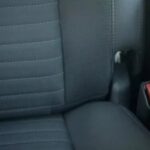Opening an auto repair shop is a significant undertaking, blending automotive expertise with business acumen. Beyond the wrenches and diagnostic tools, understanding the necessary licenses and registrations is paramount to legally operate and build a reputable business. This guide will walk you through the essential requirements, focusing on what you need to officially open your auto repair shop and serve your customers with confidence and compliance.
Understanding the Essential Licenses for Your Auto Repair Shop
Navigating the licensing landscape can seem complex, but it’s a crucial first step. The primary license you’ll need is the Automotive Repair Dealer (ARD) registration. This is mandatory in many jurisdictions for any business that receives compensation for repairing, diagnosing, or altering motor vehicles. Think of it as your foundational license – without it, you cannot legally operate a car repair business.
The Bureau of Automotive Repair (BAR) mandates this registration, and starting January 1, 2024, this requirement expands. It now includes businesses that collect compensation for automotive repair services they refer or sublet. This means even if you don’t physically perform the repairs yourself but act as an intermediary, you still need ARD registration.
Beyond the ARD, depending on the services you plan to offer, you might need additional licenses:
Smog Check Station License
If your auto repair shop intends to perform smog checks, crucial for vehicle registration compliance in many areas, you’ll need a Smog Check station license. This license comes in different types, including test-and-repair, test-only, and repair-only, depending on the scope of smog services you offer. Becoming a licensed Smog Check station allows you to address a significant customer need and expand your service offerings.
STAR Station Certification
For shops aiming to handle a broader range of vehicles, including those with a history of emissions issues (“directed vehicles”), STAR station certification is the next step. This certification, built upon the Smog Check station license, signifies that your shop meets higher performance standards. STAR certification can enhance your reputation and allow you to participate in programs like the Consumer Assistance Program (CAP), offering repair assistance services.
Vehicle Safety Systems Inspection Station License
With the evolving regulations, the Vehicle Safety Systems Inspection Station license is becoming increasingly relevant. Replacing older brake and lamp licenses, this license, effective from March 27, 2024, allows you to inspect critical vehicle safety systems. Obtaining this license positions your shop to address comprehensive vehicle safety needs, contributing to roadworthiness and customer safety.
Image: Screenshot of the online application form for Automotive Repair Dealer license, highlighting the convenience of online application process.
Application Process: Step-by-Step to Get Your Shop Licensed
Applying for these licenses involves a structured process. While the specific steps might vary slightly based on your location and the licenses you’re seeking, the general framework remains consistent. The Bureau of Automotive Repair encourages online applications for efficiency, but paper applications are also available.
Here’s a breakdown of what you’ll generally need to prepare:
General Information and Documents
Regardless of the specific license, you’ll need to gather standard business information and documentation. This typically includes:
- Federal Employer Identification Number (FEIN): Essential for business tax purposes.
- Corporation/Limited Liability Company (LLC) number: If your business is incorporated or an LLC, you’ll need the number assigned by the Secretary of State. You may also need to provide a Corporation Statement of Information. Note: Starting January 1, 2025, this might not be required for participating tribes.
- Proof of Sale: If you’re taking over an existing auto repair shop, you’ll need documentation of the sale.
- Educational Certifications: Credentials showcasing your team’s automotive expertise can be beneficial.
- Military Documentation (if applicable): Members of the U.S. Armed Forces and their families may qualify for expedited processing and fee waivers.
- Resettlement Documentation (if applicable): Refugees, asylees, and holders of special immigrant visas may also qualify for expedited licensure.
Permits and Licenses You’ll Need to Obtain Separately
In addition to the automotive-specific licenses, you’ll need standard business permits and licenses to operate legally:
- Seller’s Permit: Allows you to collect sales tax on taxable goods and services.
- City/County Business License: General business operating license required by your local jurisdiction.
- Hazardous Waste Facility Permit: If your shop will handle hazardous materials (like used oil, solvents), this permit is crucial for environmental compliance.
- Air Quality Management District Spray Booth Permit: If you offer painting services and use a spray booth, you’ll likely need this permit to ensure air quality standards are met.
Specific Documentation for LLCs (Domestic & Foreign)
If you’re structuring your business as a Limited Liability Company (LLC), there are specific documents you’ll need, varying slightly between domestic (formed in your state) and foreign (formed outside your state) LLCs. These can include:
- Articles of Organization and Charter: Formal documents establishing your LLC.
- Statement of Information: Provides details about your LLC’s structure and management.
- Operating Agreement: Outlines the internal rules and operations of your LLC.
- Trust Agreement (if applicable): If a trust is a member of your LLC.
- Application to Register and Charter (for foreign LLCs): Issued by the state where the foreign LLC was formed.
- Certificate Registration (for foreign LLCs): Proof of registration in your state.
Image: Table summarizing different licenses for auto repair businesses, including Automotive Repair Dealer, Smog Check station, STAR station and Vehicle safety systems inspection station, with corresponding application links and fees.
Expedited Licensure and Waivers for Eligible Applicants
Recognizing the contributions and unique circumstances of certain groups, there are provisions for expedited licensure and fee waivers:
For Military Personnel and Families
The Bureau of Automotive Repair offers support to U.S. Armed Forces members and their spouses or domestic partners. This includes expedited license processing and license portability options, acknowledging the mobile nature of military service. Spouses or domestic partners of active-duty members may also qualify for initial application fee waivers.
For Refugees, Asylees, and SIV Holders
Refugees, asylees, and Special Immigrant Visa (SIV) holders are also eligible for expedited licensure. This initiative aims to reduce barriers to professional integration for individuals who have faced significant life disruptions and are rebuilding their lives.
Potential License Denial and BAR’s Commitment to Fairness
While the goal is to facilitate licensure for qualified applicants, there are circumstances where a license might be denied, as mandated by law. However, the Bureau of Automotive Repair emphasizes a fair and case-by-case evaluation process. Past criminal convictions or formal disciplinary actions do not automatically disqualify an applicant. BAR assesses each application individually, considering the nature and relevance of any prior issues to ensure a balanced approach to public safety and individual opportunity.
Requirements for Licensees and Ongoing Compliance
Obtaining your licenses is just the beginning. As a licensed auto repair shop, you’ll have ongoing requirements to maintain compliance. These often include displaying licenses and signs prominently, adhering to repair standards, and staying updated on regulatory changes. Familiarizing yourself with these requirements ensures the long-term success and legal operation of your business.
FAQs About Auto Repair Shop Licenses
Do I always need to be registered with BAR?
Yes, if you receive compensation for repairing, altering, or diagnosing vehicle malfunctions, ARD registration is generally mandatory. This also applies if you collect payment for repairs you refer to other shops. There are limited exceptions, such as businesses servicing only non-passenger vehicles or fleet owners repairing only their own fleet vehicles under specific conditions.
What if I want to perform mobile auto repairs?
Mobile auto repair businesses also require ARD registration. When applying, you’ll need to provide the license plate number of your mobile repair vehicle. Additionally, your business name, registration number, and phone number must be displayed on online ads and the mobile repair vehicle itself.
Who do I contact for other required permits?
The various permits needed, such as Seller’s Permits or LLC registration, are obtained from different state and federal agencies. The California Secretary of State handles LLC matters, the California Department of Tax and Fee Administration issues Seller’s Permits, the IRS manages FEINs, and local jurisdictions handle city/county business licenses and environmental permits. Resources like CalGOLD can help navigate local requirements.
Can I apply by mail if I can’t apply online?
While online application is recommended for faster processing, paper applications are available for ARD, Smog Check station, and vehicle safety systems inspection station licenses. However, online applications streamline the process, allowing for online document submission, fee payment, and deficiency resolution.
What happens after I submit my application?
BAR reviews complete applications, verifies information and payment, and then notifies you of approval. For station licenses, an onsite inspection is scheduled to verify equipment, tools, signage, and qualified personnel. A station license is issued only after passing inspection. If an application is incomplete or denied, BAR will notify you within 14 days, outlining the deficiencies or reasons for denial.
Opening an auto repair shop is a rewarding venture. Understanding and securing the necessary licenses is a critical step towards building a successful and compliant business. By navigating the licensing process diligently, you lay a solid foundation for your shop’s future, ensuring you can legally serve your community’s automotive needs.


